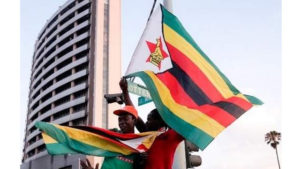 HARARE, Zimbabwe (AFP) — Upcoming elections in Zimbabwe will be a defining test of the country’s new era, following years of disputed votes under ousted ruler Robert Mugabe, the European Union (EU) observer mission said Friday.
HARARE, Zimbabwe (AFP) — Upcoming elections in Zimbabwe will be a defining test of the country’s new era, following years of disputed votes under ousted ruler Robert Mugabe, the European Union (EU) observer mission said Friday.
Previous elections were marred by violence, intimidation and fraud — often alleged to involve the ruling ZANU-PF party and state security forces.
Mugabe’s successor and former ally, President Emmerson Mnangagwa, has pledged to hold free and fair elections as he seeks to mend international relations and draw in foreign investment.
“These elections are a critical test of Zimbabwe’s reform process,” EU chief election observer Elmar Brok told at a press conference in Harare ahead of the July 30 vote.
“Given the context of past elections, great efforts need to be made to ensure public and political confidence.
“Necessary efforts include transparency and inclusivity, confidence in the integrity of the voter roll, emphasis on (the) secrecy of the vote and the peaceful conduct of the polls.”
The poll will be the first ballot-box test for Mnangagwa since Mugabe was forced out last November after 37 years in power.
EU observers have not attended Zimbabwean elections since 2002. The head of its mission at the time, Pierre Schori, was thrown out of the country on the eve of presidential elections widely condemned as flawed.
At Mnangagwa’s invitation, the EU is to deploy 44 observers on July 30, with 44 more observers due to deploy before polling day.
Brok said the mission’s work would include monitoring the conduct of the campaign, results transmission and resolution of disputes.
Mnangagwa, 75, is facing youthful opposition leader Nelson Chamisa in a presidential race that has a total of 23 candidates.
Chamisa, of the Movement for Democratic Change (MDC) party, has accused electoral officials and Mnangagwa of blocking essential electoral reforms.
The MDC will hold a demonstration next week to push its demands, which include observing the printing of ballot papers.
